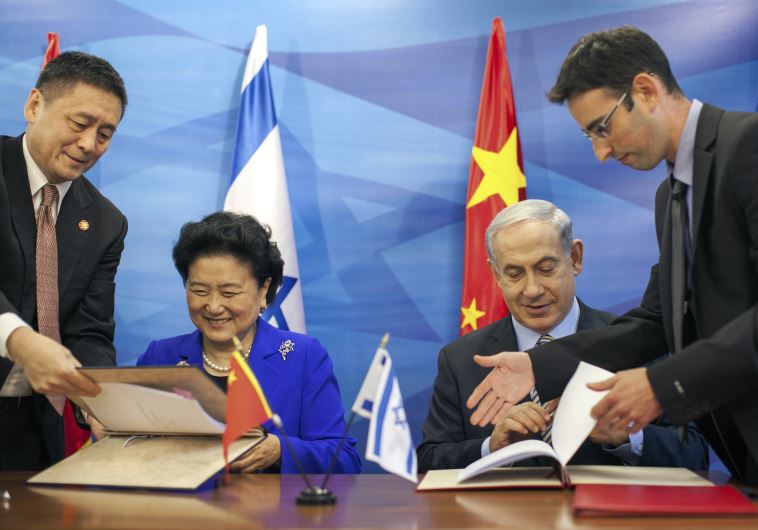'Chinese see Israel as a partner who can help in innovation'
Senior Chinese delegation arrives to take part in initiative aimed at promoting growth in bilateral business, tourism ties.
 Prime Minister Benjamin Netanyahu and China’s Vice Premier Liu Yandong sign an agreement in Jerusalem.Updated:
Prime Minister Benjamin Netanyahu and China’s Vice Premier Liu Yandong sign an agreement in Jerusalem.Updated: